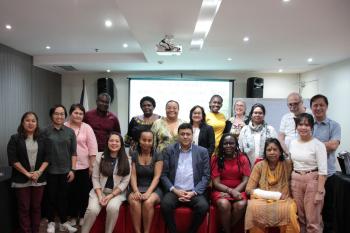
UN-Habitat's 24th Governing Council
The 24th Session of the Governing Council of the United Nations Human Settlements Programme (UN-Habitat) will be held from 15 to 19 April 2013 at the UN-Habitat headquarters in Nairobi, Republic of Kenya, under the theme of Sustainable Urban Development: The Role of Cities In Creating Improved Economic Opportunities For All, With Special Reference To Youth and Gender.
The Governing Council is a subsidiary body of the General Assembly (GA) and serves as the intergovernmental decision making body of UN-Habitat. It reports to the GA through Economic and Social Council (ECOSOC). The Governing Council is composed of 58 members who are elected by the ECOSOC for a term of four years divided along regional lines as follows: Africa, Asia and Pacific, Eastern Europe, Latin America and Caribbean States and Western Europe and other States.
At the commencement of the first meeting of each regular session, the Governing Council elects a President, three vice Presidents and Rapporteur. These officers constitute the Bureau of the Governing Council whose function is to assist the President in the conduct of the business of the Governing Council.
When the Governing Council meets, it is divided into: i. a Plenary, which is assisted by a sessional committee of the whole and a drafting committee and, ii. a High-level segment and dialogue on a special theme. The Proceedings of the Governing Council, subsequent to its sessions are forwarded to ECOSOC for transmittal to the General Assembly.
The objectives, functions and responsibilities of the Governing Council pursuant to resolutions A/RES/56/206 are set out in resolution A/RES/32/162 of 19 December 1977, which is the resolution that originally established UN-Habitat as a Commission and also in paragraph 222 of the Habitat Agenda.
Related Documents:
- GC 24 Dialogue - Bios and photos of moderators and panelists
- Revised list of speakers for dialogue during UN-habitat 24th Governing Council
- Levying the Land: Land-based instruments for public revenue and their applicability to developing countries


